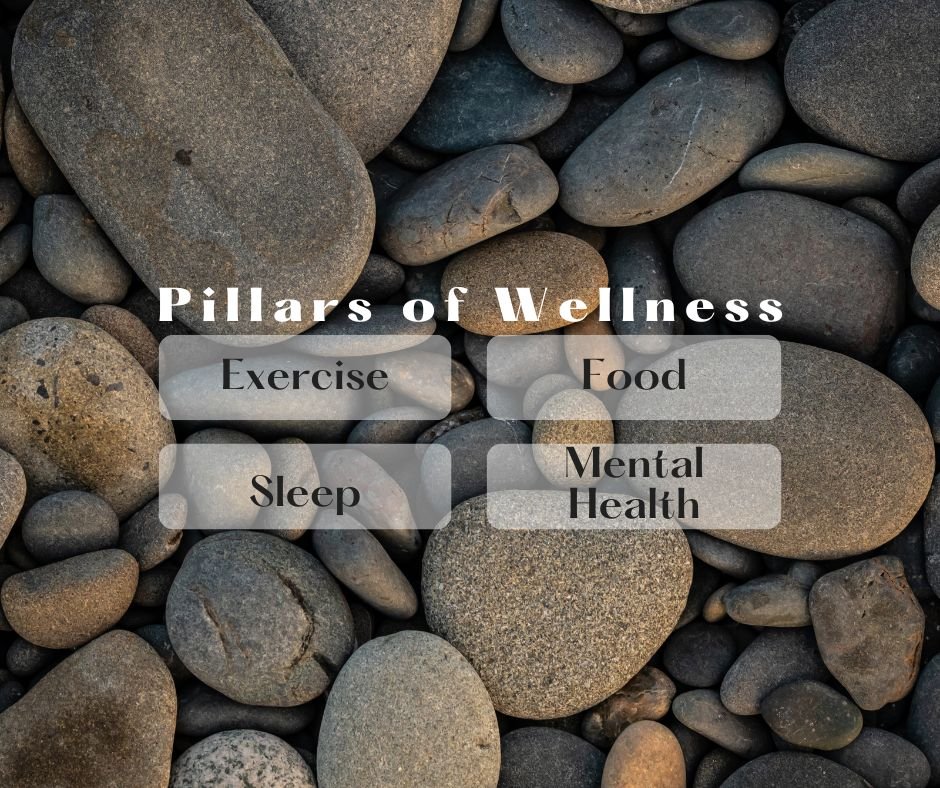
Health & Wellness - The Interconnection
Health and wellness are interconnected but not interchangeable, even though people speak of them as though they are. When we speak of one's health, this term primarily centers around the physical body, including aspects like nutrition, exercise, and the absence of acute or chronic diseases. On the other hand, wellness is the active process of achieving a high quality of being in all areas of life, such as physical, mental, emotional, social, and spiritual. Wellness has a direct influence on health, which is essential for living a happy and fulfilled life.
There are multiple aspects of health and wellness, and ensuring your body's well-being is the cornerstone of good health. Nutrition and exercise are often the go-to topics when health and wellness come up, but just as important are mental health and getting adequate rest. For the purposes of this discussion, we’ll focus on those two, as both are crucial components that should never be neglected. Too often, however, the use of mental health professionals, often referred to as shrinks, is stigmatized and shied away from. Issues surrounding mental health plague the most disadvantaged communities where there is such a dire need for help. According to Forbes Health, young adults in the U.S. have the highest rate of mental health concerns, 33.7%. This statistic should concern everyone because this is the future of our nation; these are the people who will be providing services, making laws, and teaching the next generation of children, just to name a few. So, what can we do about this growing concern? We need to start with mentally healthy and stable parents who are the caregivers of the future generation.
Parents need information, but they also need support. There are free resources available for getting assistance with mental health concerns, but there are times when a person does not realize they need help. This is when family members and friends must speak up for someone in need. If you know someone in need, please do not sit idly and hope for the best.
Rest often takes a backseat in our fast-paced lives, though it significantly maintains our overall well-being. In this fast-moving world, there seems to be no time to just sit and quiet yourself because even when you do, you may feel distracted by thinking about what you should be doing instead of relaxing. You must learn to take time for yourself without the feeling that you’re neglecting others. It is impossible for you to take good care of others when you’re not taking care of yourself. Taking time for yourself to relax and unwind can help reduce anxiety and improve your overall mood. To begin, take small steps and think about the things you could do that are relaxing, whether it's a hot bath, watching something on television that makes you laugh, or just sitting quietly in meditation. Start today on making this a frequent practice.
Prioritizing your health and wellness is an investment in yourself that pays off in the long run. By caring for your body, mind, and emotions, you can improve your quality of life and enjoy greater well-being. Remember that small changes can lead to significant improvements, so start by incorporating healthy habits into your daily routine. With dedication and commitment, you can achieve balance and lead a healthier, happier life.
Reference:
(n.d.). Mental Health Statistics And Facts. Forbes. Retrieved May 9, 2024, from https://www.forbes.com/health/mind/mental-health-statistics/


